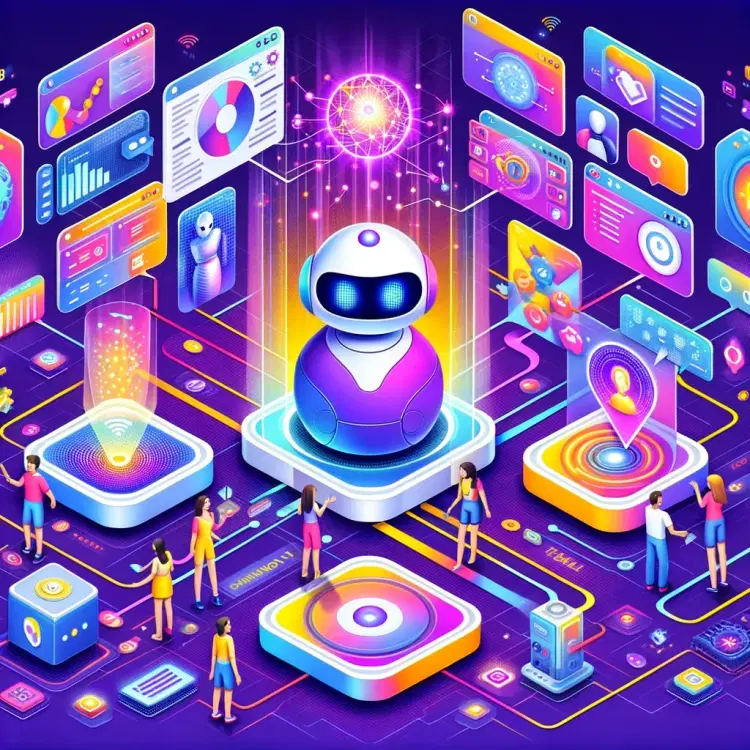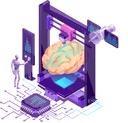Virtual assistant software artificial intelligence for business - How it's working, how much it cost?

Virtual assistant software powered by artificial intelligence (AI) is revolutionizing how businesses interact with their customers and streamline their operations. These advanced systems, known as Intelligent Virtual Assistants (IVAs), utilize a combination of AI technologies, including deep learning, natural language processing (NLP), and natural language understanding (NLU), to deliver more sophisticated and human-like interactions than traditional chatbots. Unlike chatbots, which are limited to scripted responses, IVAs can engage in dynamic, context-related conversations, understand the intent behind user inquiries, and provide personalized responses based on historical data or prior interactions.
The development of AI virtual assistants involves several complex processes, starting with the collection of accurate and representative training data from sources such as HR helpdesk ticketing systems, email threads, and instant messaging logs. This data helps the AI understand real user interactions and form the basis for its learning. Technologies like augmented reality (AR) and generative adversarial networks (GANs) are also being employed to enhance the capabilities of AI virtual assistants, enabling them to offer more immersive and realistic experiences, such as AR-based mobile chatbots and photorealistic real-time animation of human faces.
Can AI act as a virtual assistant?
Artificial Intelligence (AI) has revolutionized the concept of virtual assistants, offering advanced capabilities that extend far beyond basic task management. These AI-powered assistants are proficient in understanding and processing natural language, making them exceptionally user-friendly. They excel in automating routine tasks such as scheduling meetings, sending reminders, and even handling emails. Moreover, AI virtual assistants continuously learn from interactions, enabling them to offer personalized experiences and predictive suggestions that cater to individual preferences. This evolution in AI technology has made virtual assistants indispensable tools in both personal and professional spheres, enhancing productivity and efficiency.
How much does AI virtual assistant cost?
In 2024, the cost of AI virtual assistants varies significantly based on several factors such as the type of AI assistant, the complexity of tasks it handles, and the business model you choose. For AI software, the pricing can range from free solutions to custom platforms that may cost more than $300,000, depending on whether you opt for a solution provided by a third-party or a custom solution developed in-house or by freelance data scientists.
Specific AI virtual assistant platforms like ClickUp and Otter AI offer subscription-based pricing models. ClickUp's pricing ranges from a free plan to business plans that can cost around $29 per user per month. Otter AI offers a basic free plan and goes up to $30 per user per month for business features. Other AI assistants such as GetGenie and Taskade also provide tiered pricing plans based on usage and features, starting as low as $13 per month for GetGenie and $5 per month for Taskade's personal plans.
For general virtual assistant services, the average hourly rates can vary from $15 to $50, depending on the nature of the tasks and the experience level of the assistant. Marketing**, customer service software,** and sales tasks typically range from $20 to $40 per hour in the virtual assistants for business services. Additionally, the location from which the assistant operates greatly influences the cost; for instance, virtual assistants from countries like India or the Philippines may charge significantly lower rates compared to those based in the US or Europe.
It's also important to note that the payment structures and platforms used to pay virtual assistants can vary. Many prefer hourly billing, while others may work on a retainer or project-based pricing. Popular payment platforms include PayPal, Payoneer, and Wise, which facilitate international transactions.
What are Intelligent Virtual Assistants?
Intelligent Virtual Assistants (IVAs), often called AI virtual assistants, represent the next evolution in virtual assistant technology. These sophisticated virtual assistant systems, which include well-known customer relationship management examples like Conversica, go beyond the capabilities of basic chatbots. Unlike traditional virtual assistants, IVAs use advanced natural language processing (NLP) to understand, interpret, and respond to human speech or text in a way that mimics human conversation. This enables them to handle a wider range of tasks like scheduling appointments, sending reminders, and even engaging in complex customer service interactions.
At the core of an intelligent virtual agent is the ability to automate routine tasks using machine learning. These AI-powered virtual personal assistants can efficiently manage a user's schedule, send messages, and perform other administrative functions, freeing up valuable time for more strategic activities. The key distinction between an IVA and standard virtual assistant software lies in their intelligent virtual components. These components enable intelligent virtual agents to learn from interactions, adapt to user preferences, and provide personalized responses using machine learning.
Powered by AI, these virtual assistants can be integrated into various platforms, offering a seamless experience for handling tasks and communication. As technology continues to advance, the line between human and artificial intelligence in virtual assistance is becoming increasingly blurred, making IVAs an essential tool in both personal and professional domains.











